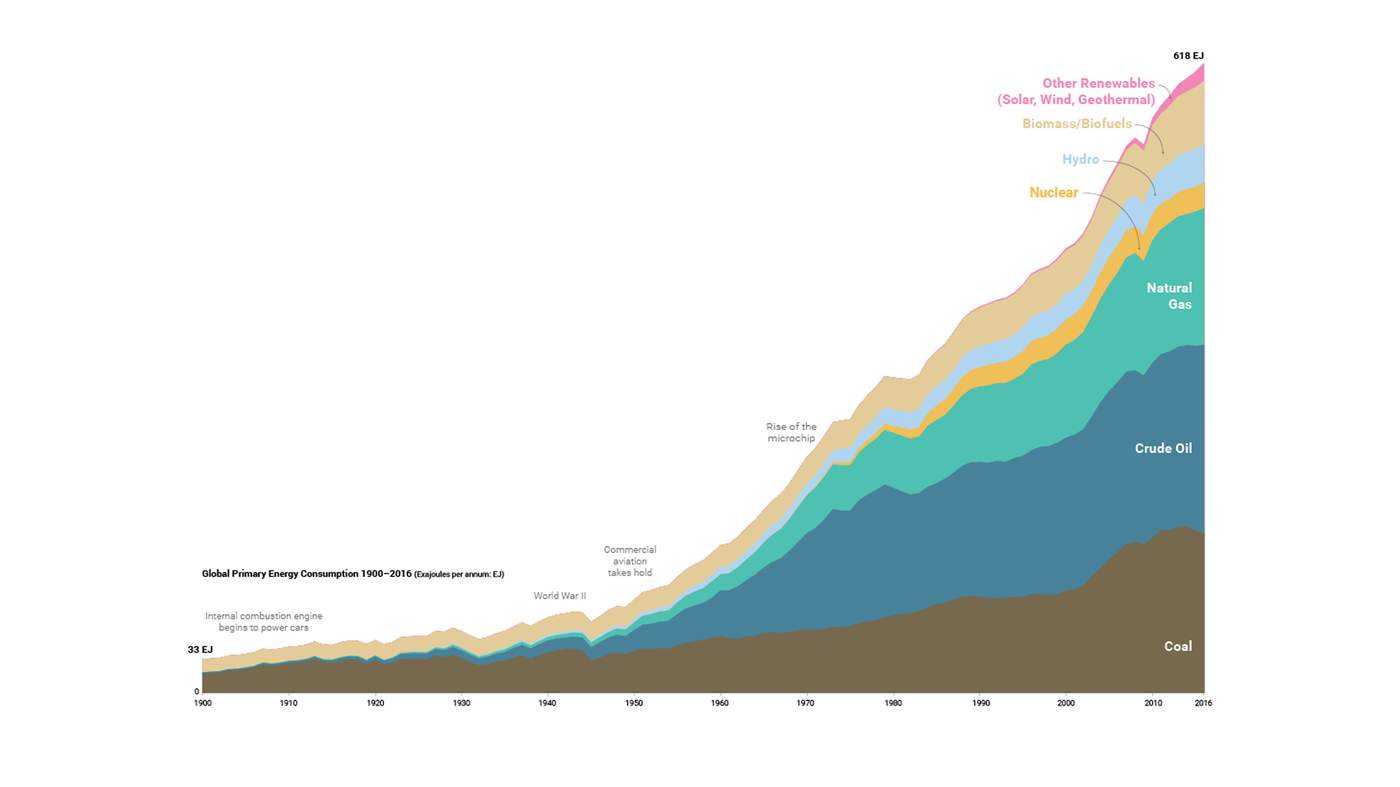Is The Great Decoupling Inevitable? A Critical Analysis

Table of Contents
The term "Great Decoupling" refers to the potential severing of economic ties between the US and China, encompassing trade, investment, and technological collaboration. Such a dramatic shift would have profound and far-reaching consequences for global supply chains, economic growth, and geopolitical stability. This analysis will delve into the factors driving this potential decoupling and examine whether a complete separation is a foregone conclusion or if alternative scenarios are more plausible.
Economic Interdependence: The Argument Against Decoupling
A significant argument against the inevitability of the Great Decoupling centers on the deep economic interdependence between the US and China. This intricate web of connections makes a clean break exceedingly difficult and potentially disastrous for both nations.
Deeply Intertwined Supply Chains
Global supply chains are incredibly complex, with both the US and China playing crucial roles. A complete decoupling would necessitate a massive restructuring of these chains, leading to significant disruptions and increased costs.
- Technology: China is a major manufacturer of components for numerous electronic devices, while the US dominates in software and design. Severing these ties would impact the entire technology sector.
- Manufacturing: Many US companies rely on China for manufacturing goods, while Chinese firms source raw materials and components from the US.
- Agriculture: The US exports significant quantities of agricultural products to China, while China supplies the US with various agricultural goods.
The sheer volume of bilateral trade and investment underscores this interdependence. In 2022, bilateral trade between the US and China exceeded $690 billion. Such figures illustrate the scale of the economic entanglement that a complete decoupling would aim to unravel.
Mutual Economic Benefits
The current relationship between the US and China offers significant mutual benefits. A complete decoupling would jeopardize these advantages.
- Access to markets: Both countries benefit from access to each other's massive consumer markets.
- Cheaper labor: US companies leverage lower labor costs in China, while Chinese firms benefit from access to advanced US technologies.
- Technological advancements: Collaboration in research and development has led to breakthroughs that benefit both economies.
Many economists argue against a complete decoupling, emphasizing the significant economic losses that both sides would suffer. As Nobel laureate Paul Krugman has stated, "Decoupling would be a profoundly negative development for both countries and the global economy."
Geopolitical Tensions: The Drivers of Decoupling
Despite the significant economic interdependence, powerful geopolitical forces are pushing toward a decoupling. These tensions stem from various sources, making a complete separation seem increasingly likely to some analysts.
Technological Rivalry and National Security Concerns
The intense technological competition between the US and China, particularly in areas like semiconductors and artificial intelligence (AI), is a major driver of decoupling. Both nations view technological dominance as crucial for national security and economic prosperity.
- Examples include the US restrictions on the sale of advanced semiconductor technology to China and China's efforts to develop its own domestic semiconductor industry.
- Government spending on technology development and defense is escalating in both countries, further fueling the rivalry. For instance, US defense spending in 2023 was over $886 billion.
These actions reflect a growing perception of each other as strategic rivals, driving efforts to reduce dependence on each other for critical technologies.
Ideological Differences and Human Rights Issues
Deep-seated ideological differences and concerns over human rights in China further exacerbate tensions and contribute to the momentum toward decoupling.
- Examples include disagreements over Taiwan, Hong Kong, and China's treatment of Uyghurs.
- These issues have led to sanctions and restrictions from the US and its allies, further straining the relationship.
Political scientists and analysts point to these fundamental differences as significant obstacles to maintaining close economic ties. As political scientist Michael E. Brown has argued, "The ideological chasm between the two nations is too wide to bridge easily."
Potential Scenarios Beyond Complete Decoupling
While a complete decoupling represents a significant risk, it's not the only possible outcome. Several alternative scenarios could emerge, involving various degrees of economic engagement and competition.
Selective Decoupling
Instead of a complete separation, a more likely scenario could involve selective decoupling, focusing on specific sensitive sectors.
- Sectors like defense, critical technologies (semiconductors, AI), and certain strategic materials are prime candidates for decoupling.
- Selective decoupling would allow both nations to maintain economic ties in less sensitive areas while reducing reliance on each other in strategically important sectors. However, this approach also carries risks, potentially leading to trade wars and economic instability.
Strategic Competition and Managed Interdependence
Another possibility is a scenario characterized by strategic competition and managed interdependence. Both nations would continue to engage economically while simultaneously competing strategically.
- This could involve diversifying supply chains, investing in domestic industries, and implementing policies to reduce reliance on each other in key areas.
- This approach presents challenges, requiring deft diplomacy and a delicate balance between cooperation and competition. However, it could minimize the negative economic consequences of a complete decoupling.
Conclusion: Is the Great Decoupling Truly Inevitable?
The question of whether the Great Decoupling is inevitable is complex and multifaceted. While the economic interdependence between the US and China presents a strong argument against a complete separation, rising geopolitical tensions and strategic competition are powerful countervailing forces. A complete decoupling would carry immense economic costs and risks for both nations and the global economy. More likely scenarios involve selective decoupling or a carefully managed interdependence characterized by strategic competition.
Ultimately, the future relationship between the US and China will be shaped by a complex interplay of economic incentives and geopolitical realities. Complete decoupling may not be inevitable, but a significant restructuring of the economic relationship seems increasingly likely.
Stay informed on the evolving dynamics of the Great Decoupling and its impact on global markets. Further research into US-China relations, supply chain diversification, and geopolitical risk analysis is crucial for navigating this turbulent period.

Featured Posts
-
 Bitcoin Price Prediction Can Trumps Policies Push Btc Beyond 100 000
May 09, 2025
Bitcoin Price Prediction Can Trumps Policies Push Btc Beyond 100 000
May 09, 2025 -
 Dealerships Intensify Opposition To Government Ev Mandates
May 09, 2025
Dealerships Intensify Opposition To Government Ev Mandates
May 09, 2025 -
 Oilers Vs Kings Prediction Game 1 Playoffs Picks And Odds
May 09, 2025
Oilers Vs Kings Prediction Game 1 Playoffs Picks And Odds
May 09, 2025 -
 Elizabeth Line A Review Of Wheelchair Accessibility And Improvements
May 09, 2025
Elizabeth Line A Review Of Wheelchair Accessibility And Improvements
May 09, 2025 -
 Jayson Tatum Bone Bruise Game 2 Status Update
May 09, 2025
Jayson Tatum Bone Bruise Game 2 Status Update
May 09, 2025
